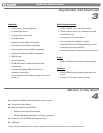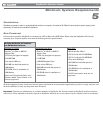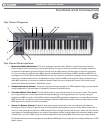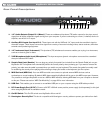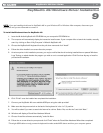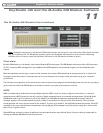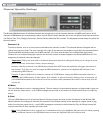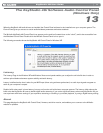
|
12
KeyStudio 49i User Guide
KeyStudio 49i and the M-Audio GM Module Software
11
The M-Audio GM Module User Interface
Note: Installation instructions for the M-Audio GM Module software can be found in the printed Quick Start Guide included
with your KeyStudio 49i. The GM Module software requires the KeyStudio 49i hardware to be connected. Additionally,
Windows users will need to install the KeyStudio 49i drivers for the GM Module software to launch.
Overview
M-Audio GM Module is a 16-channel, multi-timbral General MIDI sound player. The GM Module software provides 128 instruments
(0-127). It receives MIDI messages from your KeyStudio 49i USB keyboard, and sends audio signal out of the KeyStudio audio
outputs.
Both the standalone and the plug-in versions of the software also contain a GM standard drum and percussion kit on channel 10.
Its polyphony and the number of instances that can be run at the same time in plug-in mode are limited only by your computer’s
performance.
The following is an explanation of the technical terms used in the previous paragraph. Understanding these terms will not only help to
get the most out of M-Audio GM Module, but will also be useful on your path as an electronic musician.
MIDI
MIDI is an abbreviation for Musical Instrument Digital Interface. MIDI in itself is a means of digital communication– no sound is
transmitted over a MIDI connection, but only a series of digital messages that tell a connected sound generator (like the M-Audio
GM Module) what to do. For example, if you hit the middle C on the KeyStudio keyboard, the keyboard will send a “Note On”
message, together with information about the pitch (middle C) and how hard or fast you hit the note (Velocity). The connected
sound generator will in turn play the sound for the middle C. If you let go of middle C, the KeyStudio keyboard will send a “Note Off”
message for the same note and the sound generator will stop playing. All this happens very fast and you usually don’t have to think
about it, but it’s good to know.
When MIDI was invented, a number of additional rules and specifications were defined. Some of them are directly responsible for
the way the M-Audio GM Module looks and functions:



